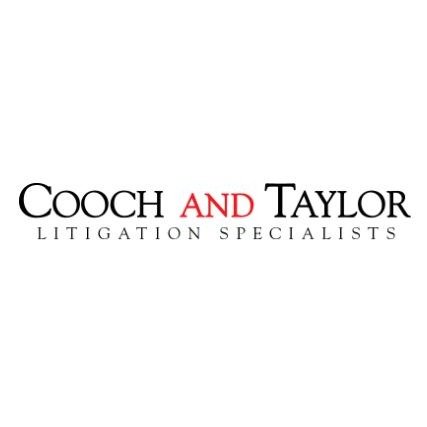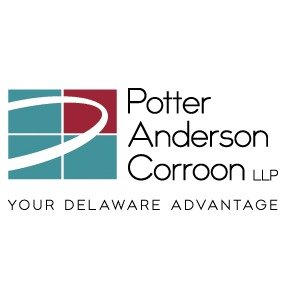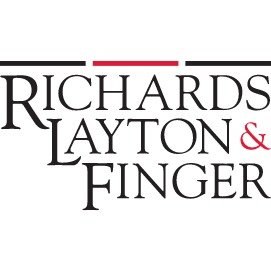Best Private Equity Lawyers in Delaware
Share your needs with us, get contacted by law firms.
Free. Takes 2 min.
Or refine your search by selecting a city:
List of the best lawyers in Delaware, United States
About Private Equity Law in Delaware, United States
Private equity (PE) refers to investment in privately held companies or the acquisition of public companies that results in their delisting from public stock exchanges. Delaware is widely recognized as a premier jurisdiction for private equity transactions, fund formations, and business operations. Its corporate-friendly environment, clear statutes, experienced courts, and established legal precedents make it the jurisdiction of choice for many investors, fund managers, and companies involved in private equity. Delaware’s General Corporation Law (DGCL) and Limited Liability Company Act (DLLCA) provide flexibility and legal certainty, benefiting both businesses and investors engaging in private equity activities.
Why You May Need a Lawyer
Private equity transactions and structuring involve complex legal, financial, tax, and regulatory issues. Here are some common situations where you may need legal help:
- Setting up a private equity fund or investment vehicle in Delaware
- Conducting due diligence on potential acquisition targets
- Negotiating and drafting transaction documents, such as purchase agreements or partnership agreements
- Ensuring compliance with federal and Delaware state securities laws
- Addressing disputes among investors, partners, or management teams
- Understanding fiduciary duties of general partners or fund managers
- Implementing exit strategies, such as initial public offerings or mergers and acquisitions
- Managing cross-border transactions and foreign investments
- Navigating changes to corporate structure, ownership, or governance
- Resolving regulatory inquiries or enforcement actions
Local Laws Overview
Delaware has developed a robust and sophisticated legal framework for private equity. Key aspects include:
- Delaware General Corporation Law (DGCL): Provides rules for formation, governance, mergers, and dissolution of corporations, including investor protections and shareholder rights.
- Delaware Limited Liability Company Act (DLLCA): Offers flexibility in creating and managing LLCs, a common structure for private equity funds and their portfolio companies.
- Chancery Court: Delaware's Court of Chancery is highly respected for commercial and corporate law expertise, often serving as the venue for major PE disputes and interpretation of contracts.
- Contractual Freedom: Delaware law permits parties to craft customized agreements, allowing private equity advisors and investors to define their rights and obligations clearly.
- Fiduciary Duties: Delaware law establishes the fiduciary duties of directors, managers, and general partners, but also allows parties to modify or eliminate certain duties in LLC or limited partnership agreements.
- Privacy: Delaware does not require disclosure of beneficial ownership for most private entities, offering a higher degree of confidentiality compared to many other states.
- Securities Regulation: While Delaware law governs entity formation and internal affairs, federal securities laws (such as the Securities Act of 1933 and Investment Advisers Act of 1940) also apply to private equity activities.
Frequently Asked Questions
What is private equity?
Private equity refers to investments made in companies that are not publicly listed, often involving direct investment, buyouts, or the formation of funds that acquire such companies.
Why is Delaware a popular jurisdiction for private equity?
Delaware offers business-friendly laws, sophisticated courts, flexible entity structures, and established legal precedents, making it attractive for private equity funds and transactions.
What legal entities are typically used for private equity in Delaware?
Most private equity funds and portfolio companies are structured as limited liability companies (LLCs) or limited partnerships (LPs) due to their flexibility and favorable legal treatment.
Do private equity funds need to register in Delaware?
Private equity funds must register their entities with the Delaware Division of Corporations. Certain funds may also need to register with the SEC or comply with federal securities regulations.
What are the fiduciary duties of private equity managers in Delaware?
Fiduciary duties include acting in the best interests of investors and the fund. Delaware allows these duties to be defined or limited within operating agreements.
How are disputes involving private equity resolved in Delaware?
Many disputes are handled in the Delaware Court of Chancery, known for its expertise in commercial and corporate law matters.
Can the details of private equity ownership be kept confidential in Delaware?
Yes, Delaware generally does not require disclosure of beneficial owners for LLCs or LPs, providing a level of privacy to investors.
What are the tax implications for private equity entities in Delaware?
Delaware companies are typically not subject to state income tax on income derived from outside the state, but federal and other state taxes may apply.
How are private equity agreements structured under Delaware law?
Delaware law allows for a high degree of contractual freedom, enabling parties to craft tailored agreements for governance, management, and profit sharing.
Do federal laws apply to private equity activities in Delaware?
Yes, federal securities laws and regulatory frameworks apply in addition to Delaware state laws governing entity formation and operations.
Additional Resources
- Delaware Division of Corporations for business entity filings and records
- Delaware Court of Chancery for information on corporate legal disputes
- Securities and Exchange Commission (SEC) for federal private equity regulations and registration
- Private Equity Growth Capital Council for industry research and advocacy
- American Bar Association Business Law Section for connections to legal professionals and resources
- Delaware State Bar Association for referrals to attorneys with private equity experience
- Internal Revenue Service (IRS) for tax considerations and compliance resources
Next Steps
If you are seeking legal advice or assistance with private equity matters in Delaware, consider the following steps:
- Collect all relevant documentation, including business plans, existing agreements, and financial records
- Identify the specific issues or goals you need help with, such as fund formation, transactions, or dispute resolution
- Consult with a Delaware-licensed attorney who specializes in private equity, corporate, or securities law
- Ask the attorney about their experience handling similar private equity matters and their familiarity with Delaware law
- Discuss fees and service terms clearly before engaging legal help
- Stay informed about ongoing regulatory and legal changes impacting private equity in Delaware and at the federal level
Taking these steps will help you address your private equity needs efficiently and in compliance with both Delaware and federal laws.
Lawzana helps you find the best lawyers and law firms in Delaware through a curated and pre-screened list of qualified legal professionals. Our platform offers rankings and detailed profiles of attorneys and law firms, allowing you to compare based on practice areas, including Private Equity, experience, and client feedback.
Each profile includes a description of the firm's areas of practice, client reviews, team members and partners, year of establishment, spoken languages, office locations, contact information, social media presence, and any published articles or resources. Most firms on our platform speak English and are experienced in both local and international legal matters.
Get a quote from top-rated law firms in Delaware, United States — quickly, securely, and without unnecessary hassle.
Disclaimer:
The information provided on this page is for general informational purposes only and does not constitute legal advice. While we strive to ensure the accuracy and relevance of the content, legal information may change over time, and interpretations of the law can vary. You should always consult with a qualified legal professional for advice specific to your situation.
We disclaim all liability for actions taken or not taken based on the content of this page. If you believe any information is incorrect or outdated, please contact us, and we will review and update it where appropriate.
Browse private equity law firms by city in Delaware
Refine your search by selecting a city.












